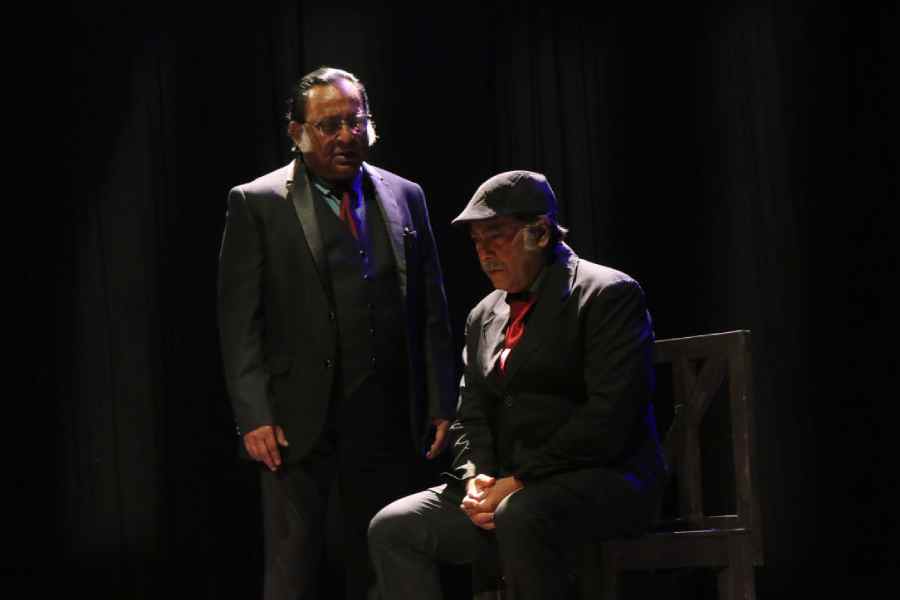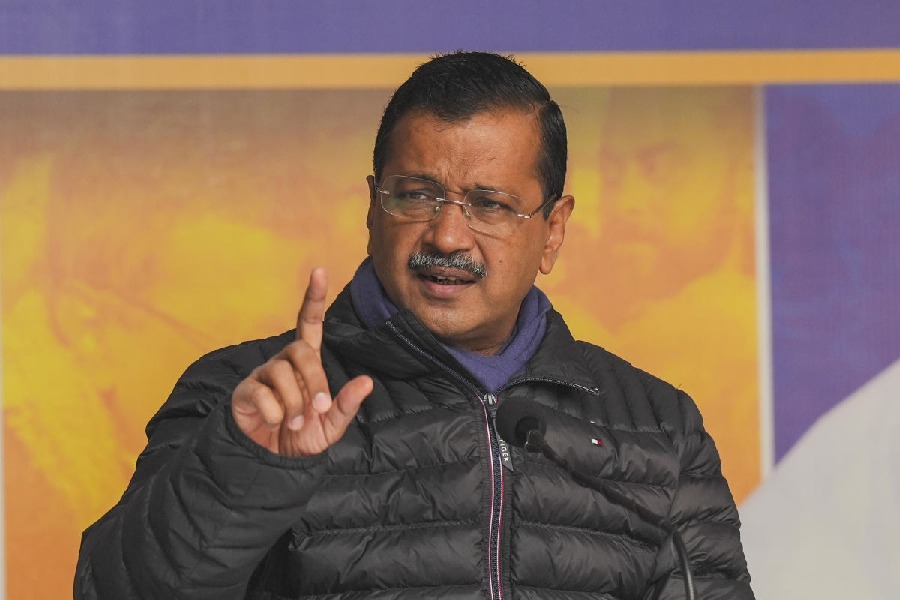When used as an instrument to illustrate societal wrongs, theatre’s unique qualities shine through. Taking inspiration from Judgment at Nuremberg, Prachyo’s Daay Amadero delivers a powerful warning against the evils of staying quiet, or worse, participating in majoritarian purges.
The passionate verve of courtroom arguments and the eloquent denouncements of silence are represented efficiently by the director, Hiran Mitra, and his team. Liberal sprinklings of videos showing concentration camps and interludes of the Führer — Ronit De delivers a chilling rendition — exhorting his fellow men to establish a mighty Germany remind the audience about the horrors of the Holocaust. The story is about the trial of three German judges, Emile Hahn, Friedrich Hofstetter and Ernst Janning — played with a touch of exaggeration by Debshankar Haldar — for their complicity in crimes against humanity. A panel led by the American judge, Dan Haywood — the veteran, Biswajit Chakraborty, is perfect in the august role — asks why they allowed mass sterilisations to be conducted and charges of ‘blood defilement’ to be filed against Jews who dared to show even fatherly affection towards German girls. The lawyer defending Janning, Hans Rolfe — Supriyo Dutta’s performance is effective — is earnest in his assertions that the accused was simply following the edicts of the times; after all, racial subjugation was widely practised across Europe and even in America.
But the fault did not lie with the German judges alone. All citizens were complicit by their silence. What lifts Daay Amadero above the usual anti-Nazi story is that it does not devolve into didacticism. Performing at Barrackpore’s ramshackle Sukanta Sadan, the actors made dexterous use of the space, sometimes descending into the vacant area in front of the stage as if addressing the ‘mute’ spectators.
The set design deserves appreciation too: numerous tombstone crosses depicting unmarked graves and blood-red cloths emblazoned with Nazi swastikas comprised a striking visual element.










